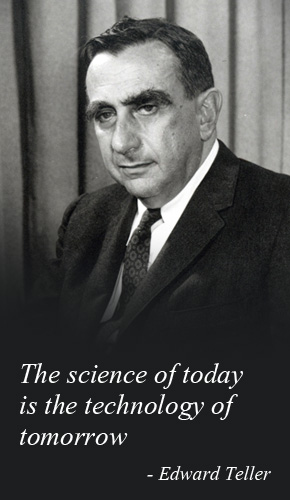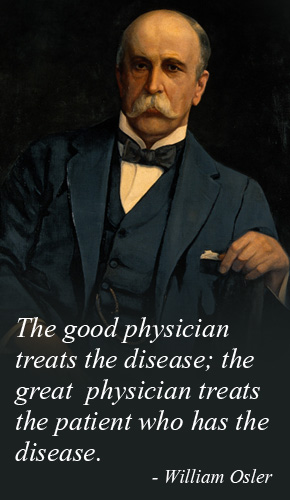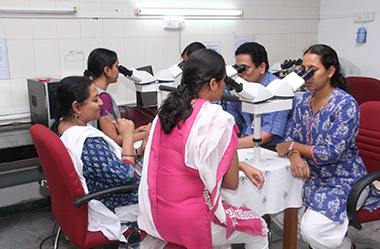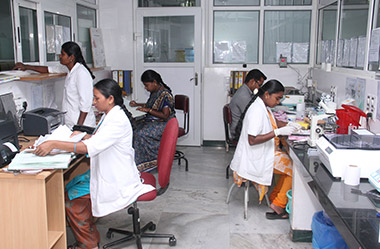Pathology

The Department of Pathology was started in 1986 by Dr. M Balaraman Nair, a renowned pathologist and teacher. It is now headed by Dr. Tadury Madhukar Subbarao and is the largest department in PSG Medical College. Post graduation in Pathology was started in 2001 with a single seat, which has now been increased to four admissions per year.
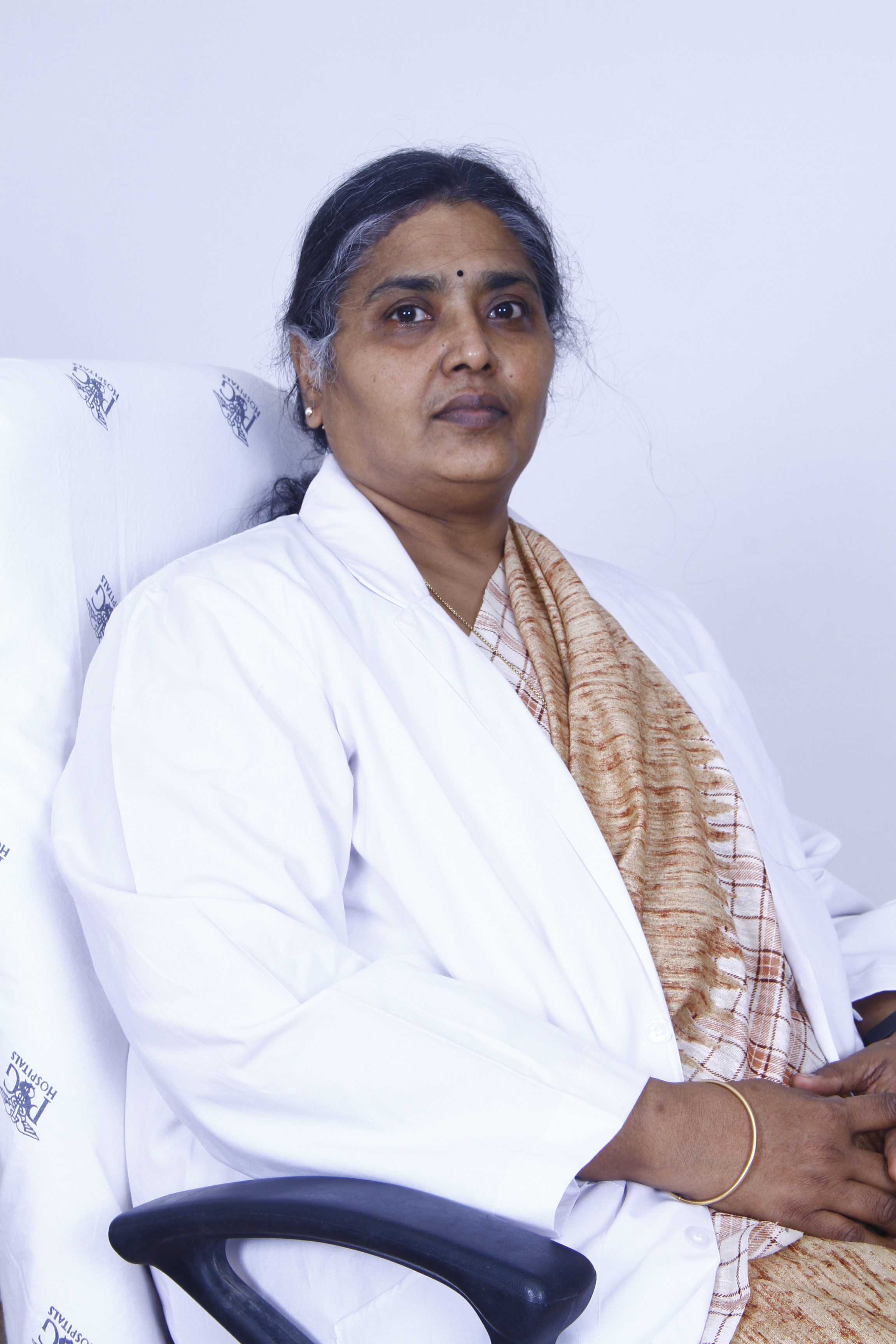
Dr. S. Shanthakumari Head of the Department of Pathology
It is a dynamic department with talented and dedicated faculty. The department contributes significantly to the curriculum in medical education and is dedicated to fostering imaginative and talented pathologists who will continue contributing to human well-being in the fundamental efforts of elucidating and understanding disease mechanisms.
The Department is organized into 4 major divisions: Histopathology, Cytology, Clinical Pathology and Haematology which includes Transfusion medicine. With an array of facilities that include a museum where over 1000 rare and unique specimens are on display, the department aims to develop academic standards of the highest order. The Clinical Pathology and Histopathology Labs are NABL accredited and optimally automated. Accreditation is an external audit of the department’s quality assurance program. Quality control is done by internal and external agencies.
The histopathology laboratory is equipped with a cryostat with which frozen sections are cut. This diagnostic modality helps make quick decisions during surgery on organs such as the breast, brain, intestine etc. In addition, the perinatal division of this section regularly performs fetal autopsies.
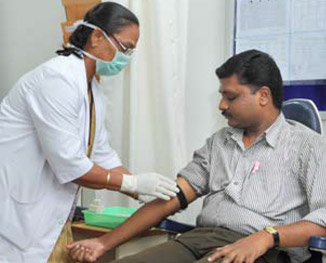
The cytopathology section examines cells aspirated or exfoliated from various sites. The Papanicolaou (Pap) smear which is a screening investigation done in this section forms an important part of the early screening for cervical cancers. Many types of guided aspirates like ultrasound or CT or endosonographic guided fine needle aspirations are performed here which help to provide rapid, relatively inexpensive and crucial diagnoses.
The clinical pathology laboratory has three major sections – haematology, coagulation and body fluid analysis. This laboratory is equipped with the best in automated equipment like a seven part automated cell counter, fully automated coagulation analyzer and a fully automated urine analyser that provides patients with rapid, accurate and reproducible results. It works round the clock and is accredited by the National Accreditation Board for Testing and Calibration Laboratories (NABL).
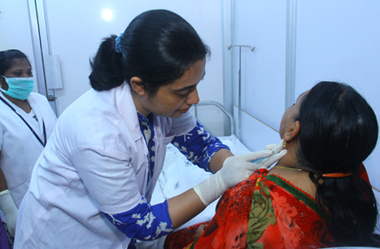
The blood bank was established in 1990 and was upgraded to a state of the art components blood bank and regional blood centre in the year 2001. It is recognised as a Regional Transfusion Centre The blood bank is equipped with a vast array of equipment like high speed refrigerated centrifuges, automated blood collection monitors and ultra low temperature freezers.. Transfusion is also provided to renal and liver transplant patients. Besides this the Department offers Aphaeresis services, wherein a particular component is removed from the blood and the remaining fractions of the blood are transfused back into the patient. This will help produce single donor products like single donor platelets and plasma and allow for more frequent donations when compared to whole blood donations. The blood bank encourages auto transfusions, which is a process whereby a patient has the option of being transfused with his own blood that was stored in the bank prior to surgery. This process once again reinforces our philosophy of transfusing safe blood.
The department boasts of a museum that houses almost 1000 speciemens many of which are rare and constitute excellent teaching material.
Research
PG dissertations:
- Correlation between direct immunofluorescence & histopathology in immunobullous disorders of skin:
- Bone marrow morphology in mutliple myeloma:
- Profile of abnormal results of conventional coagulation tests in trauma patients:
- A series of studies in thyroid cancer for the consecutive post graduates was undertaken as thyroid neoplasms are on the rise in this part of the country. Mutational analysis on the archival material is undertaken so as to take it to patient care and prevention after an epidemiological study in the future.
- Cd15 expression in thyroid neoplasms
- BRAF mutation in thyroid neoplasm and its clinical correlation
- Immunohistochemical expression of Gelectin-3 and HBME-1 in thyroid neoplasm with BRAF mutation and phenotypic expression A Histochemical & Immunohistochemical study of H.pylori associated gastritis
- P63 expression in lung carcinoma:
- Application of Immunohistochemistry in the diagnosis and classification of Acute leukemia.
- Validity of platelet indices in the diagnosis of immune Thrombocytopenia Correlation of expression of er & pr in non-germ cell ovarian cancers with Histological type, grade and clinical correlation.
- PAX5 Expression in lymphomas.
- Evaluation of an automated urine sediment analyser for the diagnosis of renal disorders and comparison with manual methods.








